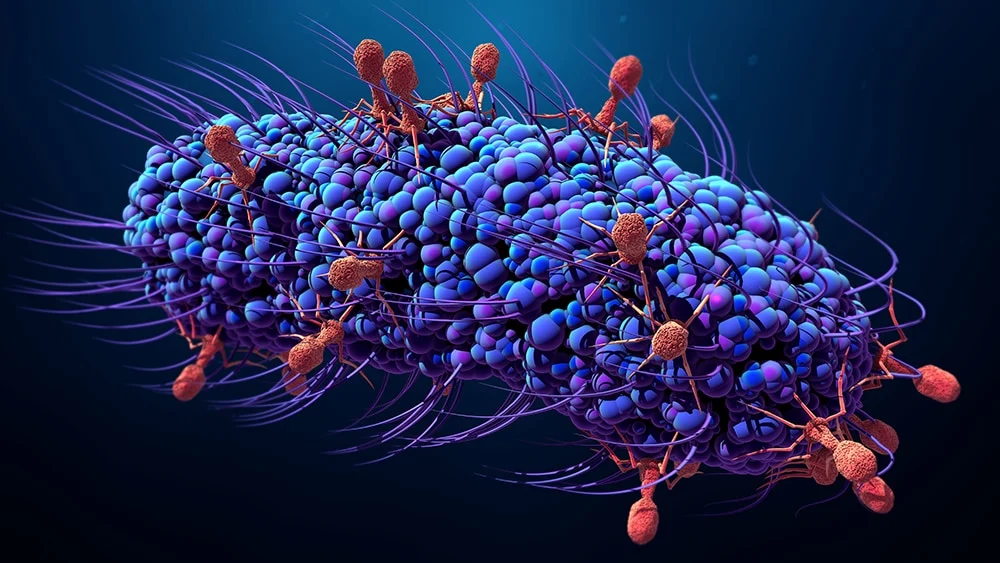Home » Acne News » Could a Virus be the Answer to Antibiotic-Resistant Acne?
Could a Virus be the Answer to Antibiotic-Resistant Acne?

If you’ve struggled with acne that just won’t improve even after antibiotics, there could be a solution on the way – bacteriophage therapy.
This groundbreaking new approach could offer a targeted, effective alternative to traditional acne treatments.
What are bacteriophages?
Bacteriophages (“phages” for short) are a vital part of the human microbiome – viruses that naturally regulate bacteria (including the acne-causing Cutibacterium acnes) and influence health and disease.
These phages already exist in your skin’s microbiome, playing a role in keeping bacterial populations in check.
Unlike antibiotics, which wipe out a broad range of bacteria (including good ones), phages are highly selective – and that’s part of what makes them so promising.
Why do we need an alternative to antibiotics?
Antibiotics have long been a go-to option for treating moderate to severe acne. But their overuse has led to growing resistance, making some treatments less effective.
They can also upset the balance of good bacteria on your skin and in your gut – sometimes causing more harm than good.
With fewer new antibiotics in development, researchers are turning their attention to smarter, more sustainable options like phages.
What makes phage therapy so exciting?
- Targeted approach: Phages only attack acne-causing bacteria, leaving the rest of your skin’s microbiome intact.
- Less risk of resistance: If bacteria become resistant to phages, they tend to become weaker overall, unlike with antibiotics.
- Biofilm break through: Phages can break through biofilms – the sticky barriers that acne bacteria use to protect themselves.
- Fast and flexible: Phages can be quickly matched to different bacterial strains and even genetically enhanced for better results.
Researchers are also exploring phage “cocktails” – blends of different phages that can work together or even be used alongside antibiotics for greater effect.
Further research is needed
While phage therapy has huge potential, it’s still early days. Some phages don’t kill bacteria as effectively as others, and acne-causing strains can still develop resistance in certain cases.
Scientists are also working to determine:
- The best way to deliver phage therapy to the skin.
- How often it should be used.
- Whether removing acne-causing strains could have unintended effects on skin health.
Dermatologist advice
Dr Lisa Byrom, dermatologist and acne expert, says phage therapy could offer a smarter, more targeted way to treat acne – especially when antibiotics stop working.
“With antibiotic resistance on the rise and fewer new options in development, bacteriophages give us a way to selectively target the acne-causing strains of C. acnes without disturbing the good bacteria on your skin,” she explains.
“While we’re still in the early stages, phage-based treatments could one day be used alongside, or even instead of, antibiotics for people with persistent or resistant acne.”
Conclusion
Bacteriophage therapy isn’t available for acne just yet, but it’s an exciting area of research, especially as we face rising antibiotic resistance.
With more studies underway, it could become a powerful new tool for people with persistent, treatment-resistant acne.
